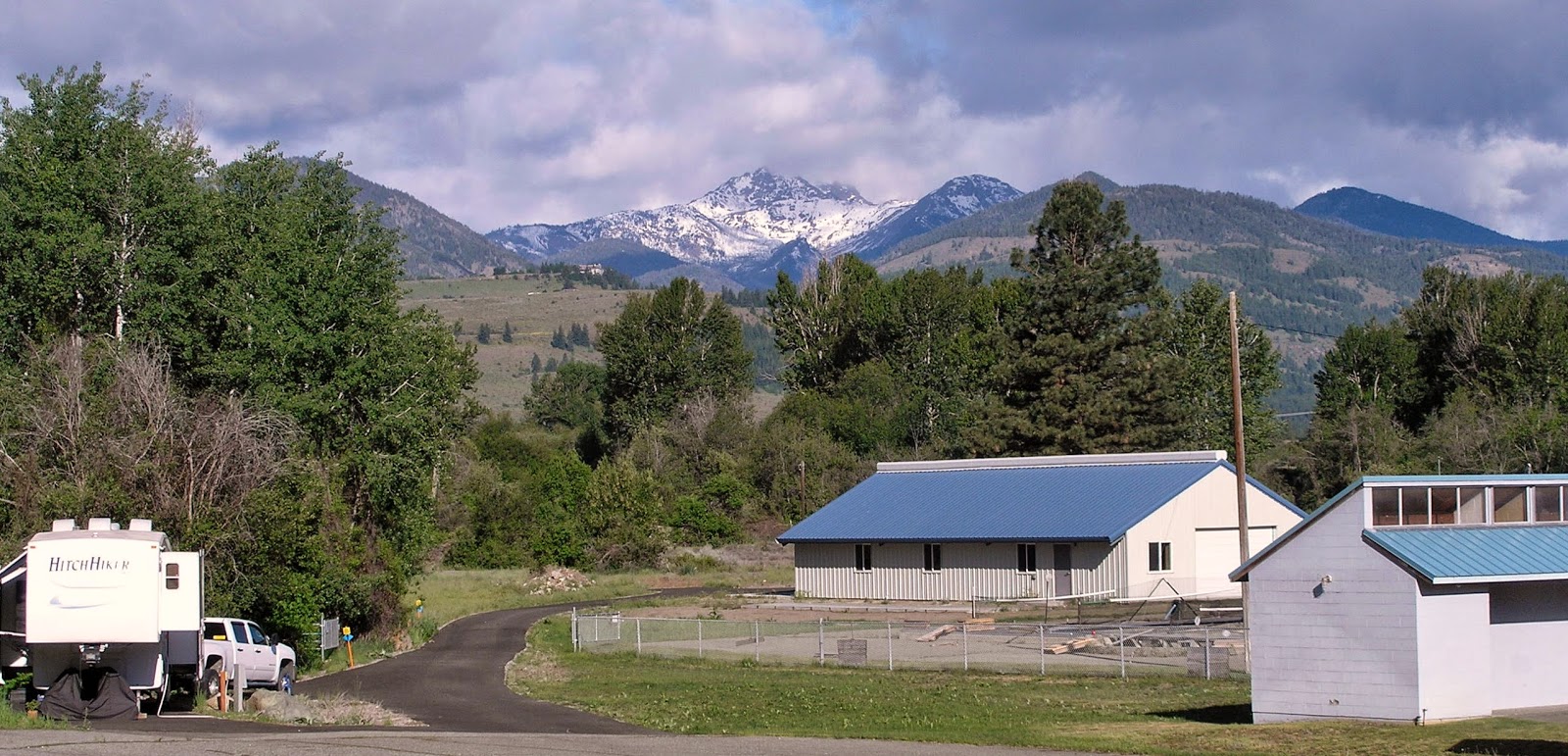Overview
Spawning Building - built about 2 years ago. Inside the building is a small visitor center with a viewing window to watch the egg collection process.
When the fish "come home" they enter a canal off the Methow River and "climb" the fish ladder to enter the holding tanks. The fish travel 600 miles and cross 9 dams to arrive "home". They will remain in these tanks until their eggs are taken and fertilized in Mid August-Mid Sept.
Chinook in canal which leads to the fish ladder.
Fish Ladder - fish jump the small waterfalls on the left of the ladder.
Holding Tanks - as many as 100+ arrive daily
Once the eggs are fertilized they are taken to the Heath Trays (back of photo) where they stay until they become frys in 3-6 months. Then they are placed in the tanks - about 15,000 per tank where they remain several months before being transferred to the outside tanks.
Washing and Cleaning Heath trays
When a salmon is about 16-18 months old they are released into the hatchery canal and they head toward the ocean (600 miles and 9 dams) which takes them about 3 months. Each fish is "marked" to identify them as a fish from the specific hatchery. A "transponder" inserted in the fish tracks the fish on its journey to and from the ocean over the dams. They return the hatchery after 1-3 years.
Rainbow Trout Pond
Some of the Steelhead Trout that are released hang around in the hatchery canal and don't want to leave so they are caught and placed in the pond. We didn't know that Steelhead Trout and Rainbow Trout are the same species - Steelhead in salt water and Rainbow in fresh water. Visitors enjoy feeding the fish. It's amazing how many fish are in the pond. Every June a Kids Fishing Day is held at the hatchery. Kids can keep the first trout they catch. Many adults sure wish they were young enough to fish. In addition, there are other educational activities for families.
Beaver Relocation Project
In conjunction with WA State Fish & Wildlife and U.S. Forestry Service, the hatchery is involved in a Beaver Relocation Program. Beaver that are problems to land owners or those that plug irrigation ditches are trapped and brought to the hatchery. Beavers are grouped into family units and eventually released in the high country to form wet land areas.
Mule deer
There are many mule deer in the area. Most days they were at our trailer.
There are many mule deer in the area. Most days they were at our trailer.
Yellow-bellied marmots
This one appears to be looking for directions.
This one appears to be looking for directions.
Eagles are an everyday occurrence
Checking out the Rainbow Trout in the Pond
Checking out the Rainbow Trout in the Pond




























1 comment:
Glad to see you are there to enjoy the summer. We have been here a month now and have learned so much. Did not know what was in a low tide zone. Been lots of fun.
Post a Comment